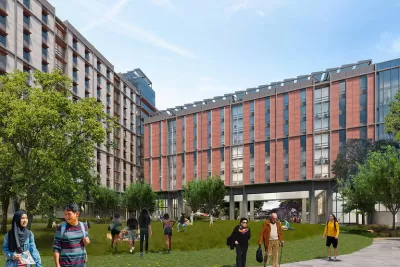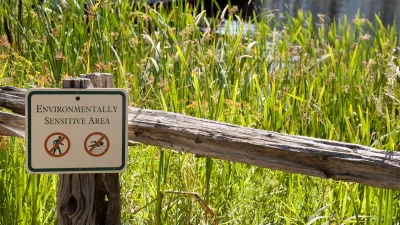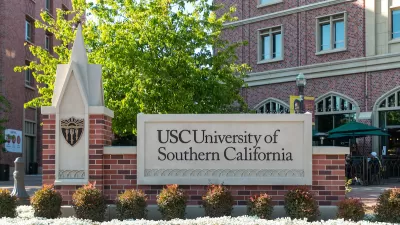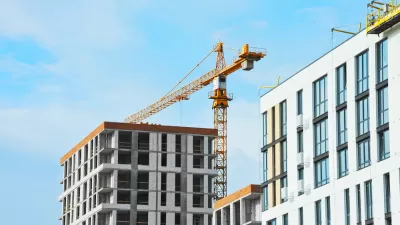The Board argues that the environmental law, while important, has too often been ‘weaponized’ by NIMBY groups to delay or halt housing development.

While the California Environmental Quality Act (CEQA) “has improved countless construction projects,” the Los Angeles Times Editorial Board argues that reform of the landmark law is desperately needed. According to the Board, “CEQA lawsuits have also too often been used to thwart progress on the state’s most pressing needs by stalling or blocking important projects.”
The Board provides an example from Berkeley, where a CEQA lawsuit is holding up the planned construction of hundreds of housing units for students and unhoused people in People’s Park. A district court ruled that the university did not conduct a thorough environmental review about the potential impacts of 1,100 student residents while ignoring the benefits of adding dense housing near campus. The Board writes that “That’s one of the pitfalls of CEQA — the law only considers the possible negative effects from a project, without giving equal weight to its benefits or the consequences if the project isn’t built.”
The Board argues that rather than creating piecemeal CEQA exemptions, such as the Berkeley project is likely to receive, state legislators should reform the law to promote development that makes sense. But the Board sees little political will to reform the law at the legislative level, urging instead that Governor Newsom “draft clear, broad exemptions for urban infill development and clean-energy projects.”
FULL STORY: Editorial: CEQA is too easily weaponized to block housing and slow environmental progress

Trump Administration Could Effectively End Housing Voucher Program
Federal officials are eyeing major cuts to the Section 8 program that helps millions of low-income households pay rent.

Planetizen Federal Action Tracker
A weekly monitor of how Trump’s orders and actions are impacting planners and planning in America.

Ken Jennings Launches Transit Web Series
The Jeopardy champ wants you to ride public transit.

California Invests Additional $5M in Electric School Buses
The state wants to electrify all of its school bus fleets by 2035.

Austin Launches $2M Homelessness Prevention Fund
A new grant program from the city’s Homeless Strategy Office will fund rental assistance and supportive services.

Alabama School Forestry Initiative Brings Trees to Schoolyards
Trees can improve physical and mental health for students and commnity members.
Urban Design for Planners 1: Software Tools
This six-course series explores essential urban design concepts using open source software and equips planners with the tools they need to participate fully in the urban design process.
Planning for Universal Design
Learn the tools for implementing Universal Design in planning regulations.
Ada County Highway District
Clanton & Associates, Inc.
Jessamine County Fiscal Court
Institute for Housing and Urban Development Studies (IHS)
City of Grandview
Harvard GSD Executive Education
Toledo-Lucas County Plan Commissions
Salt Lake City
NYU Wagner Graduate School of Public Service





























